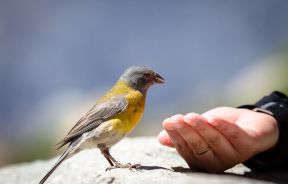What Do Liberals And Conservatives Look For In Love?: The Politics Of Dating

As politics make strange bedfellows, Americans searching online for love express overwhelming preference for matches not only in looks and personality but also in politics.
Interestingly, most online daters are more likely to acknowledge an “average” body or even “a few extra pounds,” with 57 percent identified themselves as “middle of the road” politically, hiding their political orientations in favor of the usual platitudes: adventure, wine and tapas, an affinity for hiking or sunsets. Yet, people who self-identify as liberals and conservatives tend to seek others who closely mirror their beliefs and persuasions, with conservatives slightly less tolerant of heterogeneous political orientation than liberals.
Political scientist Casey Kofstad and his colleagues randomly sampled nearly 3,000 profiles from a popular dating site, analyzing the preferences of those who identified themselves as politically liberal or conservative. They pored through data on a number of dimensions including race and ethnicity, religion, the desire to procreate, and the characteristics of their ideal match — most often searching for someone just like them.
Kofstad says the online selection process may further exacerbate the political divide between liberals and conservatives, perpetuating the separation of blue state and red state not only in the voting booth but also in the bedroom. “Parents pass their political preferences on to their children,” he told reporters. “So if we are more easily able to find someone like ourselves by ‘shopping’ for a partner online, Internet dating could hasten this process of political polarization.”
However, the process of propagating political preferences occurs over generations, rather than overnight, Kofstad added.
Among other findings, the political scientists found that men were more likely than women to espouse conservative values, with white men also more likely to identify as conservative. By contrast, liberal daters were younger and less likely to have ever married. And although liberals tended to be better educated, those fancy degrees failed to confer any detectable financial advantage over conservatives, the researchers found.
The findings bolster previous research in behavioral genetics, neuroscience, and endocrinology showing that political preference develops through a complex interaction of upbringing and experience, genes and hormones — operating within the territory that some call free will.
Source: Klofstad CA, McDermott R, Hatemi PK. The Dating Preferences of Liberals and Conservatives. Political Behavior. 2013.



























